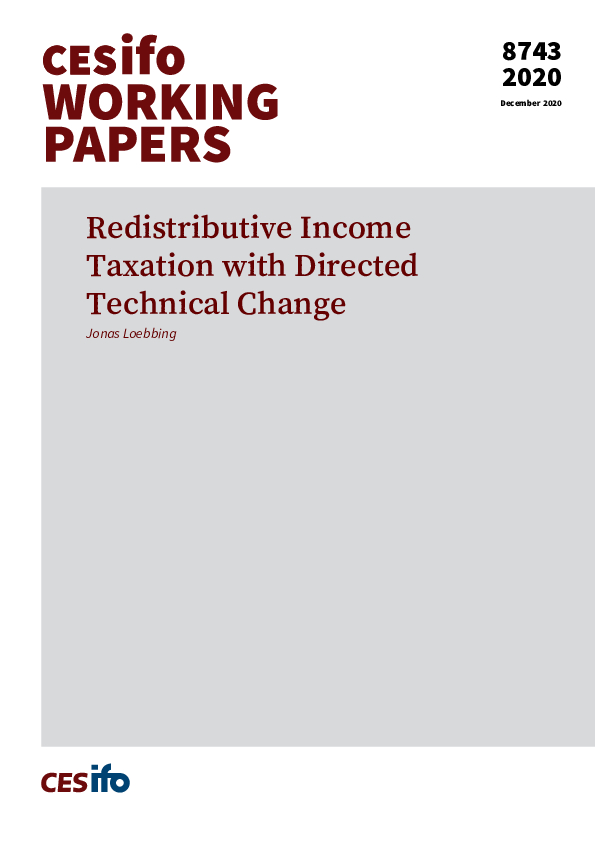Redistributive Income Taxation with Directed Technical Change
CESifo, Munich, 2020
CESifo Working Paper No. 8743

What are the implications of (endogenous) directed technical change for the design of redistributive income taxes? I study this question in a Mirrleesian economy augmented to include endogenous technology development and adoption choices by firms. Under certain conditions, any progressive tax reform induces technical change that compresses the pre-tax wage distribution. The key intuition is that progressive tax reforms tend to increase labor supply of less skilled relative to more skilled workers, which induces firms to develop and use technologies that are more complementary to the less skilled. These directed technical change effects make the optimal tax scheme more progressive, raising marginal tax rates at the right tail of the income distribution and lowering them at the left tail. For reasonable calibrations, the impact of directed technical change on the optimal tax is quantitatively important: optimal marginal tax rates are reduced substantially for incomes below the median and increase monotonically over the bulk of the income distribution instead of being U-shaped (as in most of the previous literature).
Public Finance
Fiscal Policy, Macroeconomics and Growth